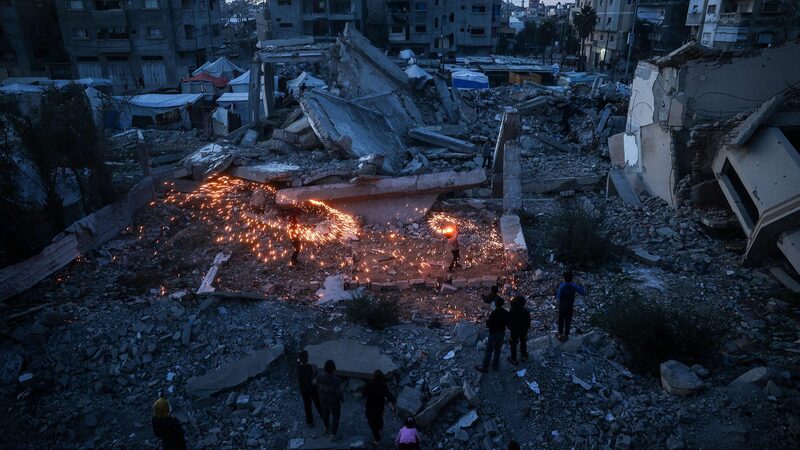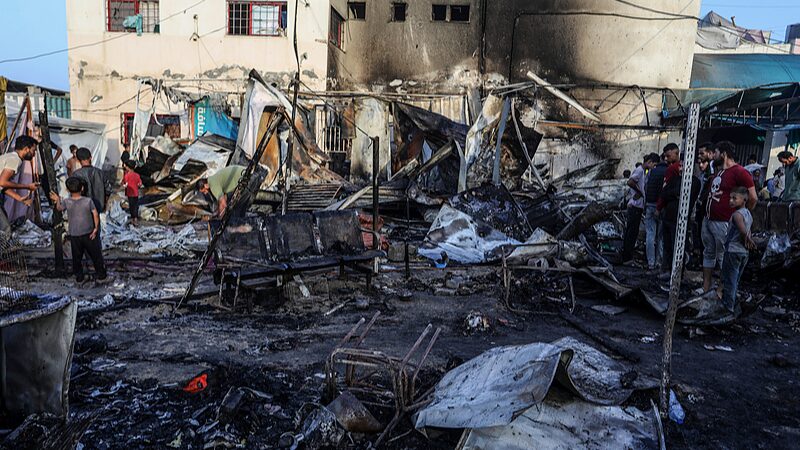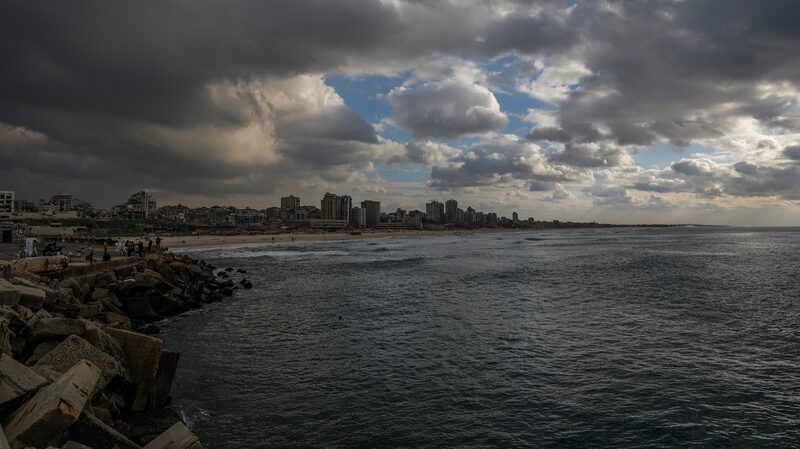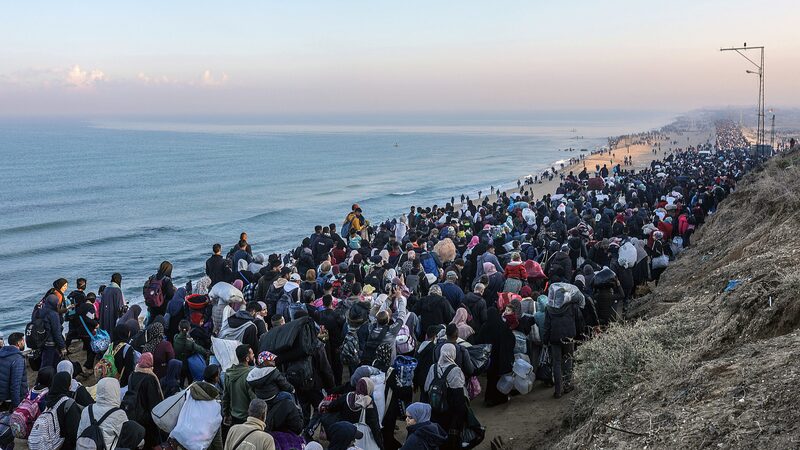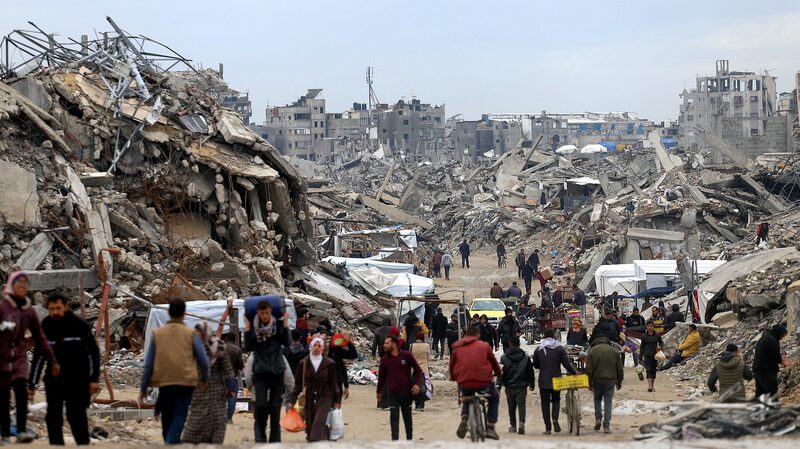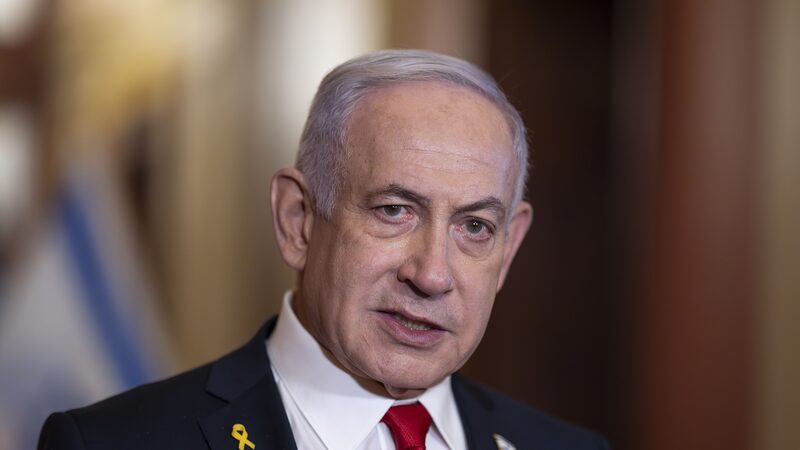Israel and Hamas concluded their sixth round of hostage-prisoner exchanges on Saturday, but the stability of the ceasefire remains in jeopardy as negotiations stall and U.S. proposals for Gaza's future become increasingly controversial.
The latest swap saw Israel release 369 Palestinian detainees in exchange for three hostages freed by Hamas. This exchange followed days of heightened tension, with Hamas accusing Israel of violating the agreement by delaying aid and restricting Palestinians from returning to northern Gaza.
The exchange is part of a broader, fragile ceasefire that began on January 19, which has so far resulted in the release of 21 hostages and over 730 Palestinian prisoners.
The involvement of the United States, particularly U.S. President Donald Trump's controversial remarks about Gaza's future, has added complexity to the already tenuous negotiations. Trump's suggestion that the U.S. take control of Gaza and forcibly displace its Palestinian population has sparked international outrage, with Hamas denouncing the idea as \"ethnic cleansing.\"
Jordan's King Abdullah II rejected the proposal during a White House meeting earlier this week, while United Nations experts warned that forced displacement would violate international law. Despite these criticisms, Trump has maintained his vision, even suggesting that Gaza could be transformed into \"the Riviera of the Middle East\" under U.S. oversight. His remarks have complicated the ceasefire talks, with Arab leaders accusing the U.S. of undermining regional stability and shifting focus away from Gaza's urgent humanitarian needs.
Trump has also escalated tensions with a recent threat aimed directly at the ceasefire. In comments made Tuesday, he called for Israel to cancel the entire ceasefire if all hostages—roughly 70 in total—are not freed by Saturday, a deadline that has since passed. Hamas swiftly dismissed Trump's threat, reiterating its stance that the ceasefire agreement must be respected by both parties for progress to continue.
\"Trump must remember there is an agreement that must be respected by both parties. This is the only way to bring back prisoners. The language of threats has no value; it only complicates matters,\" Hamas spokesman Sami Abu Zuhri said on Tuesday.
Trump's hardline stance has drawn sharp reactions from both international officials and analysts. Many observers view Trump's remarks as further complicating the delicate negotiations, with some fearing that his threats could push both Israel and Hamas to dig in their heels. The current uncertainty surrounding the ceasefire, coupled with Trump's latest statements, casts doubt on whether the truce will hold long enough to reach a sustainable peace agreement.
The ceasefire, brokered by Egypt, Qatar, and the U.S., follows a three-phase plan: a six-week pause for hostage releases, followed by negotiations for a permanent truce and full Israeli withdrawal, and ultimately Gaza's reconstruction.
While the first phase has seen increased aid shipments to Gaza, humanitarian groups caution that shortages of food, medical supplies, and shelter remain widespread. The second phase, however, has become a sticking point in negotiations. Israel insists on \"de-militarizing\" Gaza and maintaining security control, while Hamas demands a full Israeli withdrawal and an end to the blockade as preconditions. This deadlock has hindered further progress, with both sides accusing each other of prolonging the suffering.
Analysts have been skeptical that the ceasefire will hold, particularly given the shifting political landscape within Israel, with Netanyahu's far-right coalition partners vehemently opposed to the truce.
\"The (ceasefire) agreement is very vague, and there are a lot of places where Israel can – and will – maneuver its way out of it,\" Diana Buttu, a Palestinian legal scholar and a former negotiator with the Palestinian Liberation Organization, told Al Jazeera.
Reference(s):
Gaza ceasefire remains under threat after 6th hostage-prisoner swap
cgtn.com


